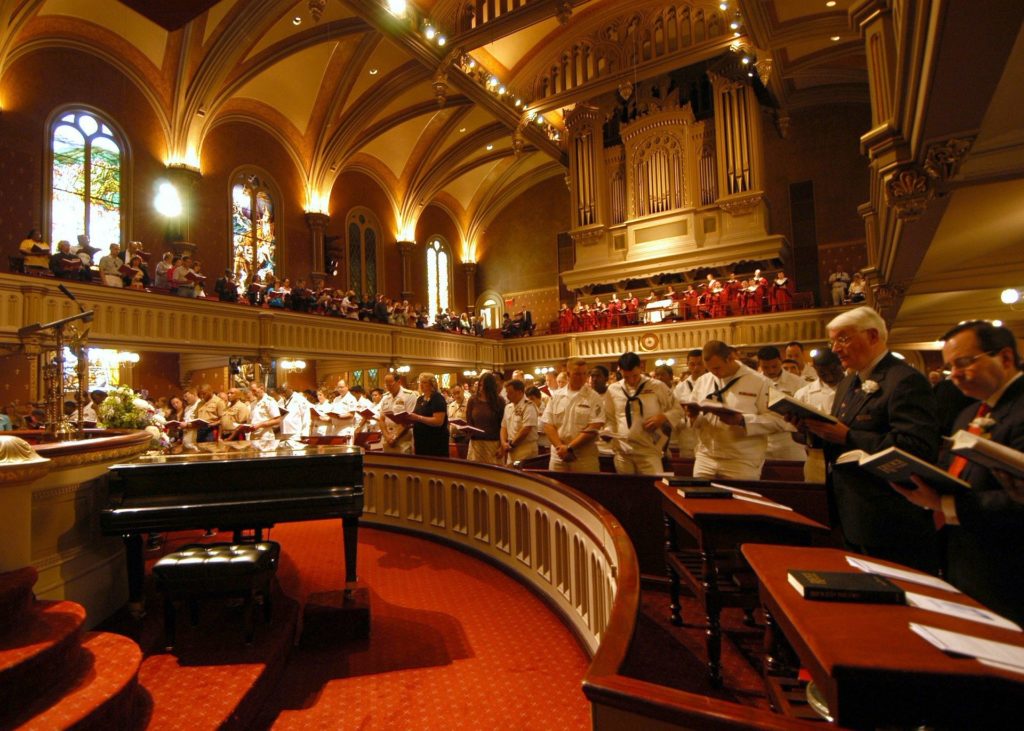Introduction
One of the glories of the reformation is the recovery of the truth of the gospel – justification by faith alone. The reformation did two significant things – led the church back to the scriptures as the only rule of faith and practice (the formal principle) and to faith alone as the means of justification (the material principle).
The reformation insisted that “it is by grace you have been saved, through faith- and this not from yourselves, it is the gift of God” (Ephesians 2:8). Many have wondered (and still do) if the truth of justification by faith alone apart from good works will not lead believers to become antinomians. If Christ paid it all and we become partakers of what he did by putting our faith in him, won’t we become relaxed and fail to pursue holiness?
However, as we read our Bible, we discover that the true gospel (justification by faith alone) rather than lead us to antinomianism leads us to do good works. Affirming the gospel of justification by faith alone is the very prerequisite for believers to be holy.
The Cart and the Horse
The gospel is the horse, and good works are the cart. We begin to face problems when we put the cart before the horse. In biblical Christianity, it is only when we experience the grace and power that comes to us in the gospel (not any time earlier) that we can do good works.
Therefore, when we preach any other gospel apart from justification by faith alone, it is not that we will get good works without salvation; we get nothing. Anyone who depends on his or her works for salvation will neither have salvation nor produce good works. As Paul reminds us, “everything that does not come from faith is sin.” (Romans 14:23). The writer of the letter to Hebrews also insists that “without faith it is impossible to please God.” Paul gave us an example in redemptive history in Romans 10 and 11. Israel had zeal (10:2); they sought to establish their own righteousness (10:3). However, it was zeal without knowledge (10:3) since righteousness can only come through faith (10:4).
Good works cannot precede faith precisely because nothing done apart from faith can be good. This is why we receive justification by faith alone and not by works.
However, what makes it even so interesting is that when we put faith forward and experience the justification that comes through faith, good works follow. It is faith that produces good works. The gospel produces good works.
Help! I Want a Holy Church
It is easy to forget this order of things in our pursuit of holiness. This is especially true at the congregational level. In many churches, the Pastor worries about the holiness of the congregation. He is concerned that there is so much worldliness in the church, and the people are not pursuing Christ, as they should. In most cases, the pastor will do his best to preach more and more about the need for the congregation to be holy. He may even preach specific sermons about the sins he identifies. He goes on and on about the sins of the congregation and their need to be holy. We all can sympathize with the pastor. Pastoring a congregation towards increasing Christlikeness can be one of the most frustrating jobs in the world.
One thing is missing in many of these cases – the gospel. The pastor goes on and on about the call for holiness. He appeals to the people’s will power, conscience, and fear, etc. Might this be a case of putting the cart before the horse?
Pastors do this for two reasons. First, they assume everyone in the congregation is saved. Second, they believe since everyone already knows the gospel, there is no need preaching it over again. The focus should be on calling them to holiness (or in some circles, social actions).
However, when we read the New Testament, we find a different approach.

Titus 3
Just to highlight one example, we will consider Titus 3. Paul was writing to Titus as the leader of the churches at Crete (1:5) and one of Paul’s children in the faith (1:4). In chapter 1, he instructed Titus to appoint elders in every town in that city. He gave him the qualifications for that position and the task of those elders to combat false teachers and their baneful effects in the church. In chapter 2, Paul gives specific instructions to specific demographics in the church (young and older men, young and older women, slaves).
In chapter 3, he started by instructing the church to be subject to rulers and authorities. In chapter 2, he gave general instructions on how they are to relate to people outside the church, “to slander no one, to be peaceable and considerate, and to show true humility toward all men.”
Why should they treat people this way? Why should they refrain from slander, seek peace, be considerate and humble towards men? The reason is that they were like these people before. There was a time when they (and us) were foolish, disobedient, deceived, and enslaved by all kinds of passions and pleasures. We lived in malice and envy, being hated and hating one another.” This tells us that when Paul tells them to slander no one, be peaceable, etc. in verse 2, he is asking them to act differently from how people will act towards them.
In essence, he is saying to them, “these people will manifest their sinfulness. They will display their passions and pleasures (like we used to do ourselves). They will be malicious and envious. They will hate you. In those situations, you will feel like repaying evil for evil. However, you must do the opposite of what they do. You must not slander. You must show peace, humility, and considerateness. Do not mind how they are treating you, treat them differently. Don’t expect them to do better because this is how we also lived before we became Christians.”
How and why will these believers in Crete live like this? It is hard to live like this. We are wired to treat people as they treat us (even when we become Christians, the old nature is alive). We are tempted to display malice, envy, and hatred towards people. Pastors discover these same sins in the church. These same sins sadden the heart of pastors today. It is bad enough that we display these attributes towards people outside the church; it is worse that we show them right in God’s holy temple (Ephesians 2:19-22; 1 Corinthians 3:16). Paul, like today’s pastors, was admonishing the church in Crete to become like Christ in humility, truth, peace, and considerateness.
Notice where Paul turns to in this letter. From verse 4 to verse 7, he reminded them of the gospel. He reminded them of the kindness and love of God and the manifestation of those attributes in our salvation. He reminded them of justification by faith alone and the rebirth and renewal that the Spirit works in us. He reminded them of how they come to partake of that Spirit only because of Christ. He reminded them of the end of our justification by his grace- our heirship and the hope of eternal life.
Paul gave them a concise refresher on the gospel. That is how he encouraged the church to become the people of verses 1 and 2.
However, notice that Paul did not think this refresher is all they will need to live, as he (and God) wants them to live. He was not thinking, “now I have given you a refresher on the gospel, you can now become the holy Christians God calls you to be.” Instead, he has these words for Titus: “This is a trustworthy saying. And I want you to stress these things, so that those who have trusted in God may be careful to devote themselves to doing what is good. These things are excellent and profitable for everyone.” (Titus 3:8)
What is a trustworthy saying? It is the gospel that he just summarized in verses 4-7. What are ‘these things’ that he should stress? They are the trustworthy saying, which is the gospel he summarized. What is the consequence of stressing this gospel? Those who have trusted in Christ will be careful to devote themselves to doing what is good. What is good? The things he emphasized in verses 1 and 2, amongst many others. This doctrine of salvation is excellent and profitable for everyone.
In essence, Paul is telling Titus that the way you get your people to become the holy people of verses 1 and 2 (do good works) is to continue to stress the gospel. I have done it in this letter, but it will not be sufficient. You must continually stress these things. How do you get a church where the people are becoming more like Christ and devoting themselves to good works? It is by the constant preaching and proclamation of the gospel.

The Gospel as Motivation
If we pay attention to Paul, we will know that he does this all over again. Paul’s thesis is simple: the gospel is the greatest and most powerful motivation for holiness. If we read Paul correctly, we will understand that if you pursue holiness to obtain salvation, you cannot be as holy (God does not even count that as holiness but self-righteousness) as when you pursue holiness because you are glorying in what Christ has accomplished for you (the full and final payment for your sins). The highest motivation for holiness is not threats or our preparation for heavenly reward (though God does use them as motivations in Hebrews and 2 Peter); it is the finished work of Christ.
Let us consider some examples:
- Ephesians 4:32: Be kind and compassionate to one another, forgiving each other, just as in Christ God forgave you.
- 2 Corinthians 8:8-9: I am not commanding you, but I want to test the sincerity of your love by comparing it with the earnestness of others. For you know the grace of our Lord Jesus Christ, that though he was rich, yet for your sake he became poor, so that you through his poverty might become rich
- 1 John 3:16: This is how we know what love is. Jesus Christ laid down his life for us. And we ought to lay down our lives for our brothers.
- Romans 12:1: Therefore, I urge you, brothers, in view of God’s mercy, to offer your bodies as a living sacrifice, holy and pleasing to God—this is your true and proper worship.
- Colossians 3:13: Bear with each other and forgive one another if any of you has a grievance against someone. Forgive as the Lord forgave you.
We can go on. However, the point is obvious- the highest motivation for us to forgive others, love others, give to the church, surrender our all to God is what Christ has already done for us. It is his work for us that motivates us to pursue holiness.

The Gospel as Power
The gospel is not only the motivation; it supplies the power.
How do we bear fruit to God? Jesus emphasized the importance of fruit-bearing in John 15. How do we bear those fruits? Wherein lies the power for fruit-bearing?
Paul tells us in Romans 7:4 that it is through Christ’s work of making us dead to the law that we bear fruits to God. “So, my brothers and sisters, you also died to the law through the body of Christ, that you might belong to another, to him who was raised from the dead, in order that we might bear fruit for God.” We bear fruit to God because Christ freed us from the law (which is the accomplice of the sinful nature in bringing us to sin – Romans 7:5). In the gospel, Christ frees us from the law and that freedom empowers us to bear fruit to God.
Now we are no longer controlled by the sinful nature. We have both died to the sinful nature and released from the law. (Romans 7:6) Now we serve God “in the new way of the Spirit.” Because God sent Christ to die for us and condemn sin in sinful man (8:3), we are now free from the sinful nature. The righteous requirements of the law will be fully met in us who do not live according to the sinful nature but according to the Spirit.
What delivered us from the sinful nature and released us from the law? It is the body (physical) of Christ (7:4). It is God sending his Son to die for us (8:3). What empowers us to bear fruit to God and live by the Spirit? It is Christ and his redemption. In fact, it is because of the sacrificial death of Christ for us that we have the Spirit (Titus 3:6; John 16:7). Therefore, the finished work (release from the sinful nature and the law) and the continuous work (living according to the Spirit) that guarantees our holiness (bearing fruits to God) are products of the redemptive work of Christ for us. They all come to us because Christ, who knew no sin, was made to be sin for us.
The finished work of Christ is both the motivation and power for holiness (good works).

The Grace and Duty of Remembrance
What then should we do? Well, it is simple (and not simple). It is simple because Paul made it clear that the task is to keep stressing these things. At the individual level, we must keep preaching the gospel to ourselves. At the corporate level, we must keep preaching the gospel to the congregation. Of course, we must pay attention to other motivations like the threats of Hebrews, our preparation for the second coming in 2 Peter 3, and the holiness of God. (1 Peter 1:15) However, the NT’s burden is to fix our gaze continuously on the finished work of Christ as our motivation and the source of power.
No wonder we read passages like these:
- 1 Corinthians 15:1: Now, brothers, I want to remind you of the gospel I preached to you, which you received and on which you have taken your stand.
- 2 Peter 3:1: Dear friends, this is now my second letter to you. I have written both of them as reminders to stimulate you to wholesome thinking
- 1 Peter 1:12-15: So I will always remind you of these things, even though you know them and are firmly established in the truth you now have. I think it is right to refresh your memory as long as I live in the tent of this body, because I know that I will soon put it aside, as our Lord Jesus Christ has made clear to me. And I will make every effort to see that after my departure you will always be able to remember these things.
- Philippians 3:1: Further, my brothers and sisters, rejoice in the Lord! It is no trouble for me to write the same things to you again, and it is a safeguard for you.
Peter and Paul considered it essential to remind the church of the things they already knew- things they received, took their stand on, and are firmly established in. This is why as believers, we must keep on preaching the gospel to ourselves, and our pastors must keep reminding us of the gospel. The gospel is our life. It is all we have. It is not only our justification; it is our sanctification.
To aid us in this great work of remembrance, Christ gave us the Supper. Whenever we come to the communion table, we are remembering the atonement. “Do this in remembrance of me” (Luke 21:19), he told us. Paul also reminds us that “whenever you eat this bread and drink this cup, you proclaim the Lord’s death until he comes.” Participating in the Holy Communion reminds us of the death of Jesus Christ and his promised coming. God in his mercy gave us this ordinance as a means of grace to aid us in our holiness. Every communion service we attend is shaping us for greater Christlikeness.

Conclusion
How do we become holy? How do we make the church more holy? One key answer that we see in the NT is that we must keep preaching and proclaiming the gospel at an individual and corporate level as the case may be. The gospel is the highest motivation for our holiness. It is where the power for holiness comes from. Therefore, we must never be tired of “stressing these things”. We become more susceptible to sin when we grow weary of God and his gospel. May He keep the fire burning in our hearts.



